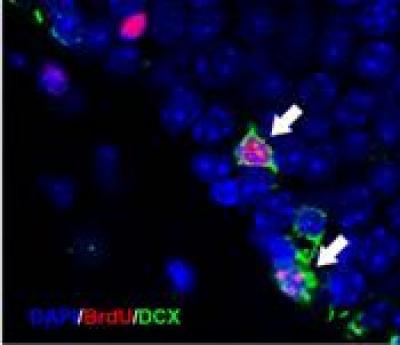Recent evidence has demonstrated that transplantation of mesenchymal stem cells can stimulate neurogenesis in the brain of adult rat or mouse models of Alzheimer's disease (AD) and improve tissue and function injury under the condition of cerebral ischemia. Few studies are reported on the therapeutic effect of adipose-derived stem cells (ADSCs) transplantation in mice with AD and on the effect on oxidative injury and neurogenesis in the brain of AD mice. Dr. Yufang Yan and her team, School of Life Sciences, Tsinghua University, China transplanted ADSCs into the hippocampus of APP/PS1 transgenic AD model mice. ADSCs transplantation reduced oxidative stress, promoted neurogenesis in both the subgranular and subventricular zone, and thereby improved the cognitive impairment in APP/PS1 transgenic AD mice. These results provide theoretical and experimental evidence for AD treatment with ADSCs. These findings were published in Neural Regeneration Research (Vol. 9, No. 8, 2014).

The number of BrdU- and DCX-positive cells was increased in the subgranular zone of APP/PS1 transgenic mice treated with adipose-derived mesenchymal stem cells, demonstrating an increase in neurogenesis.
(Photo Credit: Neural Regeneration Research)






Comments